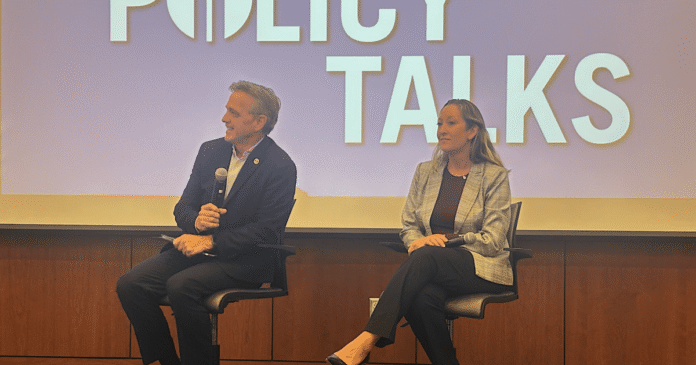Exploring the Impact of Tourism in Williamson County
A Community Forum on Tourism
This month’s Williamson Inc. Policy Talks, hosted at Columbia State Community College on October 31, brought together community leaders to discuss the vital topic of tourism. The panel featured two key figures: Maureen Thornton, president and CEO of Visit Franklin, and Mark Ezell, a commissioner with the Tennessee Department of Tourist Development. Their discussion centered on the multifaceted impacts of tourism on Williamson County and its surrounding regions.
Economic Impact of Tourism
Ezell kicked off the panel by highlighting Tennessee’s favorable tax environment, noting that it has the third-lowest resident taxes in the U.S., despite having one of the highest sales tax rates. Thornton chimed in with impressive statistics, stating that Williamson County ranked sixth out of 95 Tennessee counties in direct tourism expenditures, with visitors spending over $1.3 billion last year alone. "That’s about $150,000 a day in sales tax revenue," Thornton mentioned, emphasizing the significant contributions from tourists to local businesses and restaurants.
Ezell further explained the implications for public funding, revealing that the Tennessee education fund is largely supported by state sales tax. "Leisure and hospitality are the second leading contributors to our education fund," he remarked, pointing to the essential role that tourism plays in the state’s financial well-being and educational programs.
Crafting a Strong Brand
Branding emerged as a crucial factor in driving tourism to Williamson County. Thornton spoke about the importance of establishing a brand that resonates with visitors while reflecting the community’s values. "That brand has been rolling out, and it’s an awesome opportunity for us," she said, explaining how Visit Franklin aims to represent all of Williamson County. She emphasized Franklin’s historic appeal, stating, "It really was about tying the threads together so visitors could easily understand who we are as a place."
Nashville vs. Las Vegas: A Comparison
Amidst tales of tourism growth, the conversation shifted toward comparisons between Nashville and Las Vegas. Thornton suggested that while Las Vegas has its novelty, Nashville’s authenticity is its strongest asset. "The closer to real it is, the more interesting it becomes," she remarked, suggesting that Nashville’s growing hotel inventory and new experiences could help maintain its momentum. Ezell backed this up, sharing data showing Nevada’s rapid growth over the past seven years but predicting Tennessee would soon catch up.
The Future of Convention Centers and Sports Venues
Ezell touched on the potential expansion of Nashville’s Music City Center. He indicated that local officials would play a significant role in any decisions regarding the convention center’s future. "Nashville is so hot on the convention side," he noted, highlighting the ongoing studies to assess the need for expansion.
Thornton reinforced this discussion by highlighting the economic impact of large events in Williamson County, particularly in venues like the Tennessee Titans’ upcoming stadium, which is poised to be a multifunctional entertainment hub. "Those concerts have been driving it for us," she noted, indicating the stadium’s role in attracting more visitors.
The Role of Nashville International Airport
Ezell expressed excitement about developments at Nashville International Airport (BNA), revealing that it now offers 114 new nonstop destinations. He described the airport’s growth as transformational, especially with the introduction of Southwest Airlines flights connecting Knoxville and Memphis.
Furthermore, the conversation turned to innovations like the Music City Loop, an underground tunnel conceived by Elon Musk to enhance connectivity between Nashville and BNA. Ezell praised the project, emphasizing its potential to alleviate traffic congestion at one of Tennessee’s busiest intersections. "This could take thousands of cars off the road," he said, as the community looks forward to its implementation.
Culinary Tourism: An Often Overlooked Opportunity
Culinary experiences also entered the discussion. During the Q&A session, Rep. Lee Reeves posed a question about undervalued tourism opportunities. Ezell responded passionately, advocating for Tennessee’s culinary landscape. He anticipated that many Middle Tennessee restaurants would soon be in the running for Michelin recognition, signaling a bright future for the state’s dining scene.
Looking Ahead
The Williamson Inc. Policy Talks are set to return in January, with state representatives and senators poised to further dive into these pressing topics. With the clarity and insights shared by Thornton and Ezell, it’s evident that tourism plays a pivotal role not only in economic dynamics but also in the community’s identity and growth potential.
